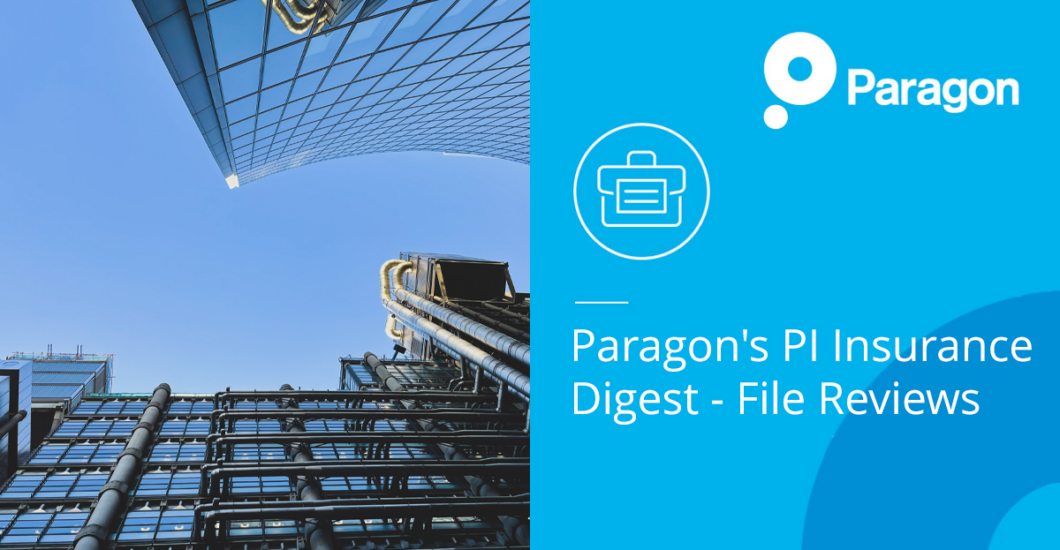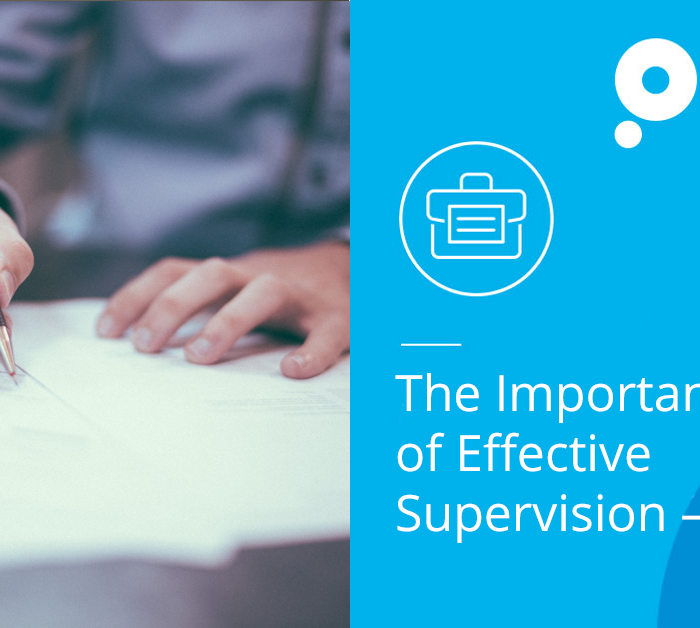Paragon’s PI Insurance Digest – File Reviews

File reviews are critical to your operational risk controls and key to running a successful practice. Add to this the Solicitors Regulation Authority’s (SRA) supervision requirements and your Professional Indemnity (PI) insurer’s performance expectations, and it’s clear that an effective, documented file review process needs to be in place. But how do you achieve the right balance to satisfy your business, regulatory and other stakeholder requirements without becoming burdensome, expensive or unnecessarily disruptive? Implementing a tick box exercise that simply achieves the auditing numbers is certainly not the answer.
It’s a commonly repeated myth that the recipe for an effective file review procedure is one file, per fee earner, per month. One size does not fit all firms, and factors such as the volume, complexity of fee earners’ work and overall experience must be considered when implementing your supervision and file review strategy. Our experience working closely with firms and PI insurers has shown us that file review processes are implemented with various levels of effectiveness.
David Green, Managing Director of The Strategic Partner, Paragon’s preferred Risk and Compliance consultancy provider, says: “What is clear is that those firms that have directed file reviews to focus on what is important and do not audit to ‘hit numbers’ have a significantly improved risk profile that is actively demonstrable to external influencers.” Here are our four top tips for structuring an effective file review and auditing programme:
How: Standardised, generic file review forms work best. Audit forms should guide the auditor on critical concerns and supervisory touchpoints for specialised areas of law, like property. Audit forms are essential because they provide structure, direction, and focus (whether it’s a technical, process or procedure audit).
When: The frequency of file reviews depends on factors such as the firm’s work types, the number of fee earners and their experience. The intervals between file reviews will be influenced by, for example, your firm’s size (small firms might adopt a quarterly review while larger firms with more staff, including junior staff, implementing an increased frequency). Those with accreditations will need to consider the best practice guidance of the accreditation (i.e. the general standard for CQS is to consider monthly file reviews).
What: Although some might be selected at random, files should be targeted to reflect, say, their high-risk status, complexity, inactivity and the experience of the fee earner. Don’t ignore closed files to ensure that matters have been effectively resolved.
Implementation: Having determined and documented how, when and what files you’ll review, effective strategy implementation is critical.
- Who should perform the review? Whether the audit has a technical, process or procedural focus, file reviewers must have the knowledge and experience to complete the task. Some files might need more than one reviewer during the audit.
- How can we get fee earner buy-in? File reviews should be part of the firm’s culture and an integral part of its training and development programme. Poor or excessive file review procedures can lead to your teams’ demotivation, distrust and disengagement.
- How are issues rectified? Identifying a problem is just the first step. Don’t assume the fee earner will automatically correct the issue. Set actions and time frames to ensure rectification is performed and independently verified. Ensure you have a process to monitor corrective actions.
- How are the findings reported and analysed? Review data should be collated and analysed to identify any issues or trends so that senior management can implement changes to processes, training or other operational or commercial matters. Remember that most of the accreditations require an annual summary of file reviews with the outcome and learnings.
- How can the firm resource the workload? An effective file review process must be properly resourced. File reviews will inevitably divert the firm’s resources into non-fee earning activities. External resources and outsourcing can be cost-effective and help keep your auditing process on track.
To help you get your file review procedures on track, Paragon’s clients and prospects are entitled to a free telephone consultation with The Strategic Partner. For more information, please contact:
Ryan Senior
T +44 (0)20 7280 8254
M +44 (0)7827 575 652
This article is published without responsibility on the part of the author or publishers for any loss occasioned by any person acting or refraining from action as a result of any views expressed in the article. Specific risk management advice requires detailed knowledge and analysis of each firm and practice area facts relating to the risk. The information included in this article cannot and does not attempt to satisfy this requirement for any of its readers.
